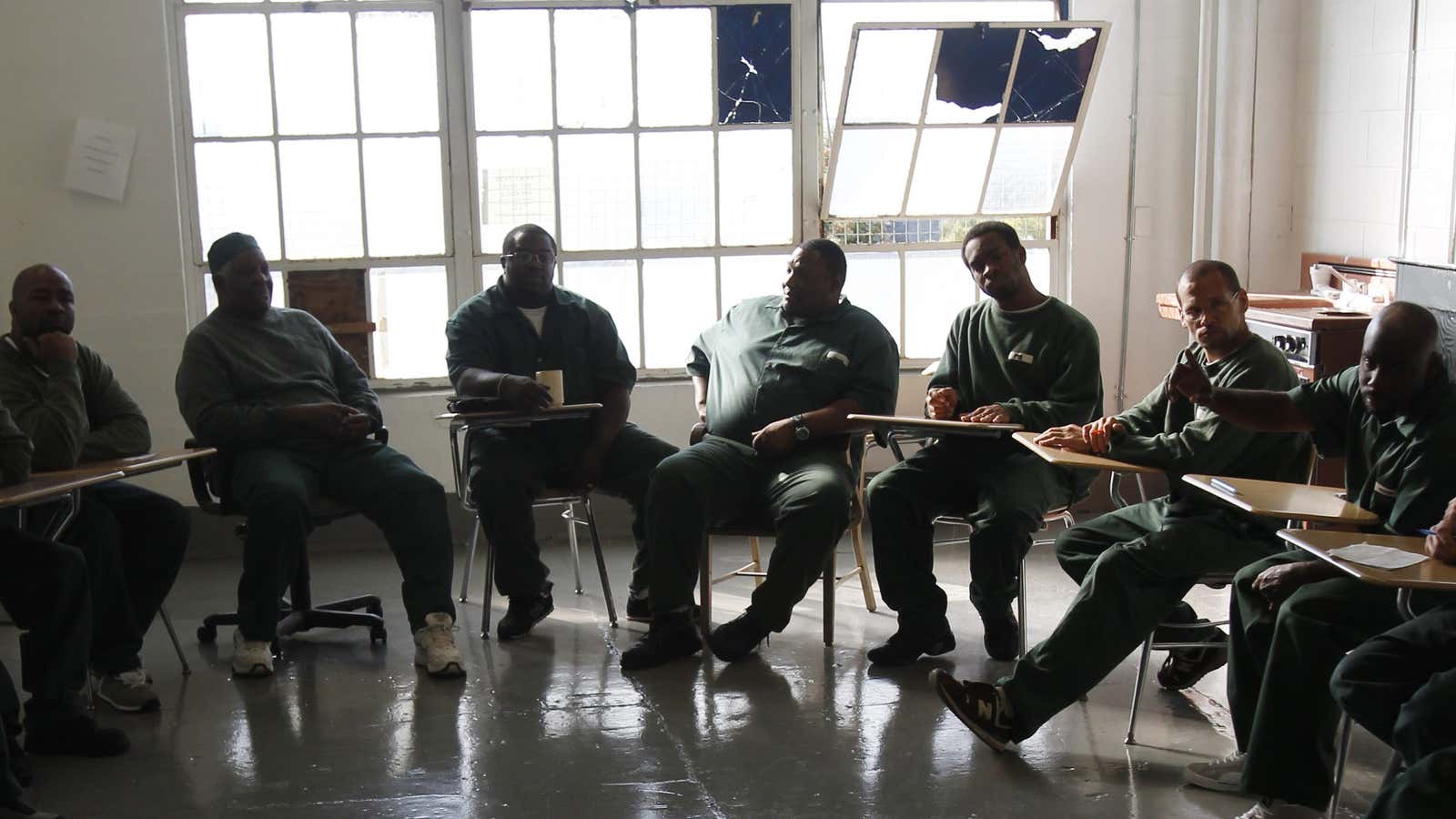Prisoners in the US aren’t allowed to read just anything. A person in a Pennsylvania prison can get access to Anarchism: A History of Libertarian Ideas & Movements, but not The Art of Seduction. She’s allowed a copy of The New Jim Crow, but not The Carny Folk: The World’s Weirdest Sideshow Acts.
Each US state has their own policies for what books and magazines to let into prisons, and the rules aren’t clear or consistent. And as the Guardian reports, Texas one of the strictest, with a statewide ban on selected titles including Alice Walker’s Pulitzer Prize and National Book Award-winning The Color Purple, 14th century Italian epic poem Inferno, Jeffrey Eugenides’s Pulitzer Prize-winning Middlesex, and Jacob Riis’s 1890 photography book about poverty, How the Other Half Lives.
Many states allow their prisons to decide case by case what books to let in, which often comes down to the discretion of mailroom clerks. But Texas keeps a database of 15,000 books that it forbids from prisons, according to the Guardian. Its guidelines are designed to keep out books that promote or instruct on criminal behavior. Books that include graphic scenes of “sexual behavior that is in violation of the law,” including “rape, incest, sex with a minor, bestiality, necrophilia, or bondage” cannot enter a prison. Neither can books with instructions on how to make weapons or drugs, nor those that contain instructions on how to break down prison systems or create “criminal schemes” without getting caught.
A 2011 report (pdf) from legal advocacy nonprofit Texas Civil Rights Project found that in 2008, 11,851 titles were on the state’s banned book list. Of those, 8,000 books had no chance of being challenged or removed from the list. The report highlights books critical of the prisons system and about civil rights, as well as classics.
Here are some of the classic works of literature that have been banned, according to their report:
- Shakespeare and Love Sonnets, edited by O.B. Duane
- Inferno, Dante Aligheri
- Vintage Hughes, Langston Hughes
- The Color Purple, Alice Walker
- American Psycho, Bret Easton Ellis
- Tropic of Cancer, Henry Miller
- Big Sur, Jack Kerouac
- The Satanic Verses, Salman Rushdie
- Deadeye Dick, Kurt Vonnegut
- The Great American Novel, Philip Roth
- The Deer Park, Norman Mailer
- First Love: A Gothic Tale, Joyce Carol Oates
- Eight Men, Richard Wright
- Villages, John Updike
- Fugitives and Refugees: A Walk in Portland, Oregon, Chuck Palahniuk
- 12 Million Black Voices, Richard Wright
- Breakdowns: Portrait of the Artist as a Young %@&*!, Art Spiegelman
- Salammbô, Gustave Flaubert
- Delta of Venus, Anaïs Nin
- Utopia, Thomas Moore
- Middlesex, Jeffrey Eugenides
- The Way to Paradise, Mario Vargas Llosa
- White Oleander, Janet Fitch
- Hooking Up, Tom Wolfe
- Everything that Rises Must Converge, Flannery O’Connor
- It Can’t Happen Here, Sinclair Lewis
- How the Other Half Lives, Jacob Riis
- The Essential Gore Vidal, Gore Vidal
Texas has one of the worst incarceration rates in the country, with about .5% of its total population in prison.
